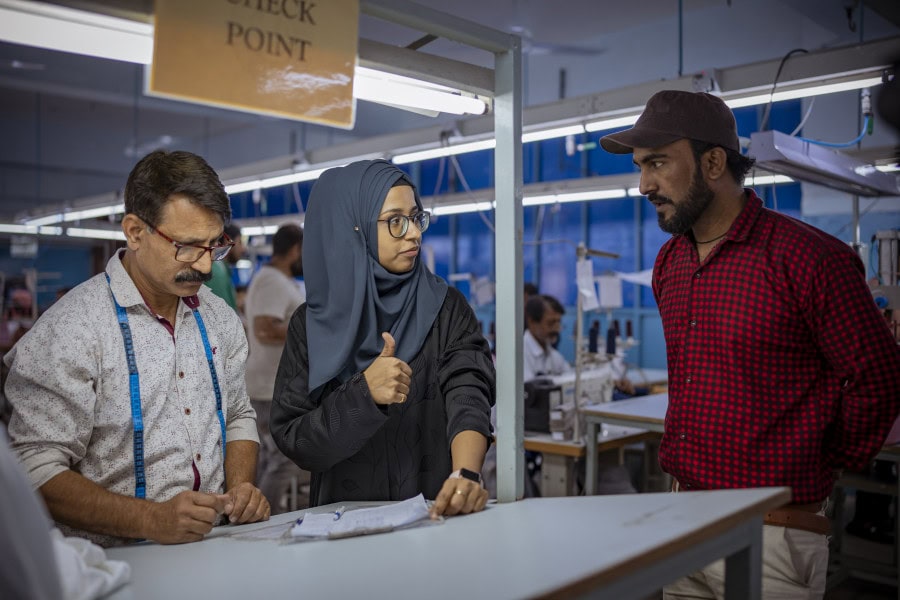A WYSD conversation with Rabia Razzaque, Senior Programme Officer (ILO) - Pakistan
Each year on July 15, the world comes together to mark World Youth Skills Day — a day that highlights the vital importance of equipping young people with the skills they need for employment, decent work, and entrepreneurship.
This observance, initiated by Sri Lanka and adopted by the UN General Assembly in 2014, emerged as a global response to the growing need to bridge the gap between education and job market realities, and to prepare youth for an ever-changing world of work.
This call resonates deeply in Pakistan, where youth represent both a tremendous opportunity and a formidable challenge. With nearly 42 million people aged 15 to 24 and a staggering 60% of the population under 30, Pakistan stands on the cusp of either reaping a demographic dividend or facing severe social and economic strain.
Yet, despite this potential, the youth unemployment rate in Pakistan remains alarmingly high at 11.1%, and nearly 32% of young people are not engaged in education, employment, or training (NEET). Beneath these numbers lies an even more troubling gender dimension: young women continue to face disproportionate disadvantages in accessing quality skills development and job opportunities, often being relegated to informal and precarious work.
In my recent discussion with Rabia Razzaque, a representative of the International Labour Organization (ILO) in Pakistan, she described this moment as a “youth bulge that can either become our greatest asset or our heaviest burden.” Her words ring true as Pakistan grapples with the urgent need to channel the energy, creativity, and ambition of its young people into meaningful and productive pathways.
Policy gaps and the need for a comprehensive approach:
Rabia pointed out that while programs like the Prime Minister’s Youth Skills Development Program have made strides in expanding from basic skills training to include entrepreneurial opportunities, microfinance, and business linkages, major policy gaps persist. “We have a draft national youth policy and a skills framework, but they remain largely on paper,” she noted, emphasizing that implementation has lagged far behind policy promises.
She further highlighted how austerity measures, shaped by Pakistan’s economic commitments to the International Monetary Fund (IMF), have curtailed critical social spending on education and skills development. “When budgets are cut, investments in human capital are often the first casualties, despite their critical importance for long-term national development,” she said.
Learning from regional examples
Comparing regional progress, Rabia observed that India has made significant strides by prioritizing human capital development through strategic policy investments and creating fiscal space for skills initiatives. Meanwhile, Pakistan continues to struggle with a rapidly growing population, high dropout rates exacerbated by economic inflation, and serious infrastructure challenges, including limited digital connectivity, nearly 46% of the population still lacks internet access.
However, she did acknowledge positive steps, such as linking skills programs with entrepreneurial opportunities to move beyond purely wage-based employment models. These efforts open new avenues for youth to create income-generating ventures and foster self-reliance, which are crucial in a country with a burgeoning informal economy.

The education-to-employment disconnect
One of the most striking issues discussed was the disconnect between Pakistan’s education system and the realities of the labor market. Rabia emphasized that, “Our system focuses excessively on rote learning and exam-based success, but fails to teach essential transferable skills such as business planning, teamwork, emotional intelligence, and adaptability — all of which are vital in today’s fast-evolving job landscape.”
She highlighted the lack of standardized quality in private schools and underscored the urgent need for comprehensive curriculum reforms. Drawing inspiration from global best practices, such as Japan’s emphasis on personal management, communication skills, and life skills from an early age, Rabia called for the integration of “school-to-work transition” modules into Pakistan’s primary and secondary education frameworks.
The reality of brain drain
The conversation also touched upon the painful reality of Pakistan’s ongoing “brain drain,” where skilled professionals leave the country in search of better economic opportunities and personal security. Rabia linked this phenomenon to Pakistan’s longstanding reliance on remittances and labor export policies. “We cannot continue to hollow out our own critical sectors, particularly healthcare, where we already face shortages of nurses and doctors,” she cautioned.
She shared that insecurity, job instability, and the erosion of basic human rights remain primary drivers for young people seeking futures abroad. “When youth feel that their safety and freedom are compromised at home, they understandably look elsewhere,” she added, highlighting the need to address these structural barriers to retain talent.
Future skills and new frontiers
Despite these daunting challenges, there is a clear horizon of opportunity. Rabia outlined several promising skill areas for Pakistani youth that could redefine economic and social landscapes.Digital skills, particularly in coding, AI certifications, and fintech, are not only in high demand but also increasingly accessible even for young people in rural areas.
She also highlighted the importance of green and climate-resilient skills, from solar and wind energy installation to green masonry and precision farming using AI technologies. These skills align with Pakistan’s national energy transformation goals and global climate commitments, while simultaneously creating new employment avenues.
In addition, caregiving skills, including mental health support and telemedicine, are becoming increasingly vital, especially in underserved communities. The hospitality sector is also poised for transformation, with AI chatbots and virtual reality-based training opening doors to modern service roles. Likewise, advanced manufacturing, including robotics and 3D printing, offers exciting possibilities for those willing to embrace technical innovation.
“Skills in these emerging fields are not just job opportunities; they are pathways to empower youth to actively shape a sustainable and inclusive future,” Rabia emphasized, reflecting a deep belief in the transformative power of targeted skill development.
A call for coordinated action and youth voices
A recurring theme in our discussion was the fragmented nature of current initiatives. Rabia stressed the urgent need for coordinated, collaborative partnerships among government agencies, private sector actors, and grassroots organizations. “We cannot afford to keep working in silos; we must build collective frameworks that integrate diverse stakeholders,” she urged.
Perhaps most importantly, she underscored the necessity of placing youth voices at the center of policy and program design. “Youth need to be seen not just as beneficiaries but as active partners and leaders in shaping the policies that impact their lives,” she said. The inclusion of youth leaders in workers’ groups and policy forums is critical to ensuring that their unique perspectives and needs inform national strategies.
A defining moment for Pakistan
On this World Youth Skills Day, we are reminded that skills development must move beyond slogans and short-term schemes, it must become a sustained, strategic national priority. Only then can we transform the hopes of millions into meaningful opportunities, and turn our youth from a potential burden into our greatest collective strength.


















